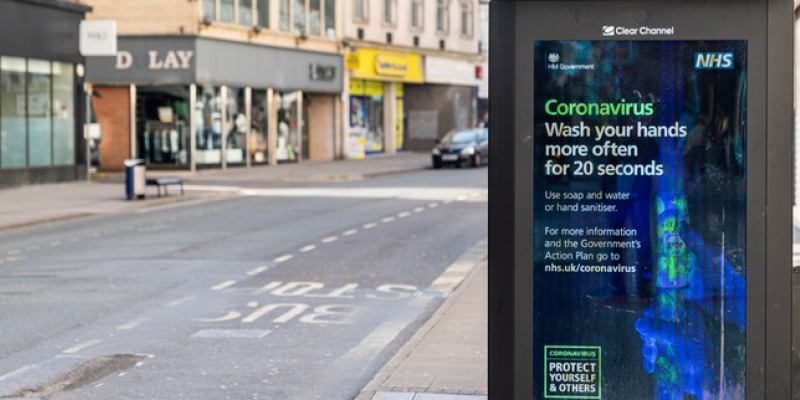
Chancellor Rishi Sunak has given business some much needed breathing space with his phased ending of the furlough scheme which has been paying the wages of something like 8.4 million employees.
Before today’s announcement, business was worried that he would take them to the cliff edge of survival.
But he has pulled back to give many smaller businesses - especially in the hospitality sector-the hope of staying in business post-COVID.
He announced the new furlough phasing at the government coronavirus briefing this evening and said:
“I have aimed and tried to make the scheme as generous as possible to try and protect as many jobs as possible.
“There will be hardship ahead for many. That rests heavily on my shoulders - I am very conscious of that and I will work very hard to make sure that all those who do lose their jobs as a result of what is happening I am trying as hard as I can to get them back into work and good work as quickly as possible.”
He said that the scheme lasting for eight months and ending in October was comparable to anything like it in the world.
In a poetic frame of mind, the Chancellor added:
“Across the country office lights will be turned on and windows thrown open. Shops and factories will start to hum with activity.”
He said the job retention scheme had now supported a million jobs and over a million businesses.
“No British government Labour or Conservative has ever done anything like this. I believe it has made a real difference.
“But as we re-open the economy there is broad consensus across the political and economic spectrum that the furlough scheme cannot continue indefinitely.”
It will now continue until October and employers will need to start contributing as government introduce “flexible furloughing”.
An employee will see no change to their level of support.
He said he had decided to ask employers to only pay what he called a “modest contribution introduced slowly over the coming months.”
For June and July, the scheme continues as before with the government paying 80% of wages with no employer contribution at all.
In August the taxpayers contribution will stay at 80%.
By September employers - in the final two months of the scheme - will be asked to start paying towards people’s wages.
In September employers must contribute 10% of an employee’s wages with the government it would be 70%.
In October it would be 60% from government with 20% from employers.
“The biggest request I have heard from businesses large and small right across our country is to have the flexibility to decide what is right for them”, said the Chancellor.
“So, to protect jobs and help businesses to decide how quickly to bring their workforce back we arevintroducing a new, more flexible furlough.
“This is a critical part of our plan to kickstart the economy.
“People want to work-no one wants to be at home on furlough. No one wants to feel unable to contribute.”
On July 1, a new flexible furlough starts - one month early.
“Employees will have the maximum flexibility to decide on the right arrangements for them and their furloughed staff.
“Your employer could bring you back for two days a week. They would pay you for those two days a week as normal while the furlough scheme would continue to pay you for the other three working days.”
The old scheme will close on June 30 for new entrants.
Employers wishing to join the new scheme will have to do that by June 10.
The Chancellor also announced the Self-Employed Support Scheme will now be extended with applications in August for a second and final grant paid out in a single instalment covering three months of average earnings. It will be up to a total of £6,500.
Rishi Sunak concluded: “Not everything will be the same as before.
“We won’t simply be able to put the key in the lock and open the door and step into the world as it was in January.
“Today, a new national collective effort begins to re-open our country and kick-start the economy.”
- Log in to post comments
